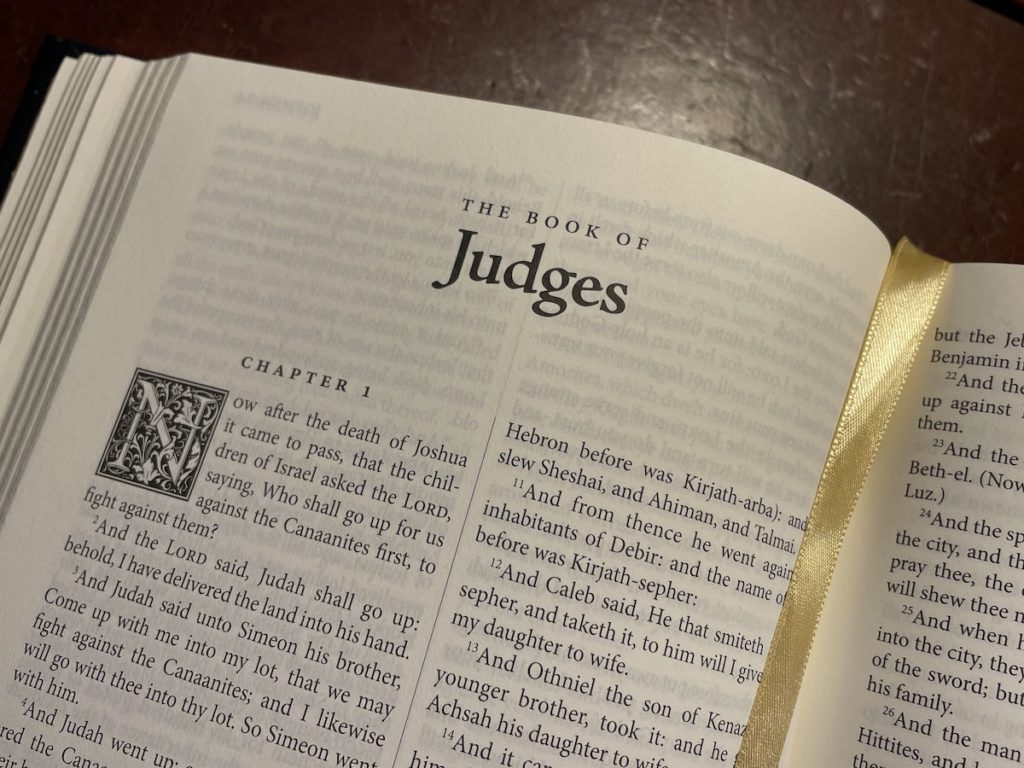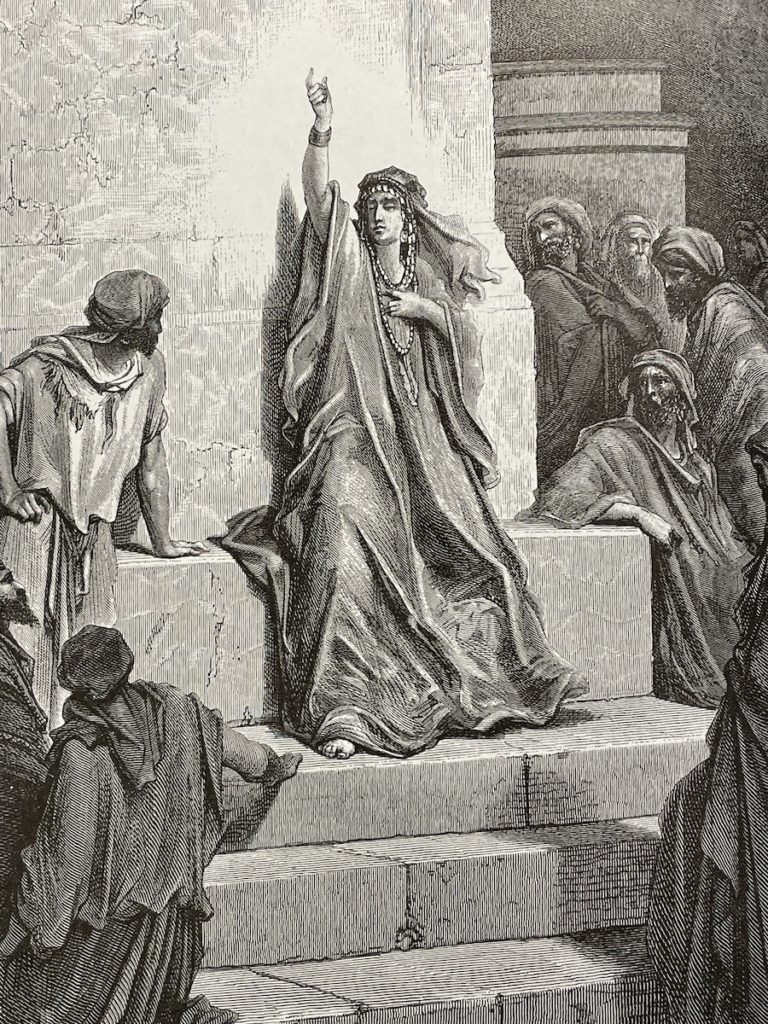
Judges 4–5
During the time of the judges, the nation Israel was languishing under oppressive foreign powers, yet on numerous occasions, YHVH mercifully sent them a savior to deliver them and through miracles and against overwhelming odds, Israel defeated its oppressors and the nation was brought to a new spiritual level. During this time, YHVH raised up powerful leaders, some of whom were prophets, to lead his people in national spiritual revival and to defeat their oppressive enemies. Most of these leaders were men, but when no man would step forward, he would use women to deliver his people. Deborah, a fiery woman of Elohim, was such a leader.
I have encountered no better description of Deborah the prophetess than this one found in a dusty old book in my library:
Deborah—what a strong solitary ray of light strikes from her story and song, upon the peaks of the past! A mother in Israel, the wise woman of her neighborhood, curing diseases, deciding differences, perhaps, at times, conducting the devotions of her people—how little was she, or were they, aware of the depth which lay in her heart and in her genius. It required but one action and one strain to cover her with glory. In her, as in all true women, lay a quiet fund of strength, virtue, and courage, totally unsuspected by herself.…The Great Spirit, seeking for a vent through which to pour a flood of ruin upon the invaders of Israel, found this woman sitting under her palm tree, on the mountain side, and she did his bidding.…The calm matron becomes the Nemesis of her race, and the mantle of Miriam falls on her shoulders, and the sword of Joshua flames her hand. [Her] prophetic fury sinks not, till the enemy of her country is crushed, and till she has told the tidings to the earth, to heaven, and to all after-time. And then like a sword dropped from a hero’s side, she quietly falls back into her peaceful solitude again.…How wonderful are the gust which surprise and uplift men, and women too, into greatness—greatness before unknown, and terrible even to themselves. (The Bards of the Bible, p. 98, by George Gilfillan, 1851)
The story of Deborah often brings up the question concerning the role of women among YHVH’s people. Proponents of women in leadership roles point to Deborah as a champion to their cause. Those who decry any sort of women leadership within the Christian church often blush when the example of Deborah is brought up, and are quick to add that she was a one-time exception to this rule. What does the Bible say about women leadership among believers?
As proof that on numerous occasions, YHVH raised up to prominent leadership roles among his people, please note the following examples as Batya Wootten points out in her book, Mama’s Torah—the Role of Women:
- Miriam was a prophetess and coworker with her brothers Moses and Aaron in leading Israel (Mic 6:4).
- YHVH used the daughters of Zelophehad to help instruct Moses, and on the basis of their wisdom, the Torah was amended (Num 27:1–11).
- Huldah was a prophetess and an advisor to King Josiah (2 Kgs 22:11–20).
- Queen Esther helped to write law (Est 9:29).
- Phoebe was a deacon or minister within the spiritual body of early Messianic believers (Rom 16:1–2).
- Junia along with Andronicus, her husband, are listed as apostles (Rom 16:7).
- Priscilla and Aquila were a husband and wife ministry team and pastored a congregation that met in their home. There are times when the Scripture even records Priscilla’s name first. She was evidently a dynamic leader, along with her husband (Acts 18:2, 18, 26; Rom 16:3; 1 Cor 16:19; 2 Tim 4:19).
- The women in Corinth prayed and prophesied publicly (1 Cor 11:5–6).
- Philip had four daughters who prophesied (Acts 21:9).
- A nucleus of women developed a congregation at Philippi (Acts 16:12–15,40).
Wootten then deduces from the biblical record that “believing communities should be aligned with biblical patterns of the Scripture. And while it clearly depicts a pattern of male leadership, is also clearly shows female participation” (ibid. p. 37).
In light of the example of Deborah we must ask the question: will YHVH’s plans and purposes be put on hold or thwarted simply because there is no person of the male gender to fulfill those plans? For example, can he who spoke through the mouth Balaam’s donkey, and who, Yeshua declared, could raise up rocks to declare his praises not also use women as he so chooses, when there lacks male leadership for the job? At the very least, could he not use women in powerful and instrumental ways to assist men in fulfilling the purposes of Elohim?





